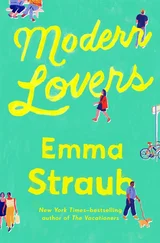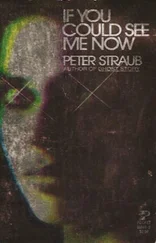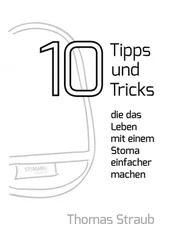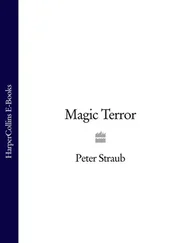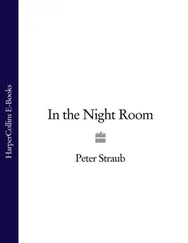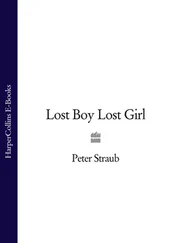He comes toward her. ‘Someone did, anyhow.’
She springs onto the bed. Her legs churn. Mr X wraps a hand around her ankle. The nightdress slides up over her hips when he pulls her toward him. She releases the little girl and shouts, ‘Run, baby! Run outside and hide!’
He yanks the woman off the bed and kicks her in the stomach. The little girl stares at him. He flicks a hand at her, and she shuffles an inch forward on her knees. ‘Too cold outside for a nice baby,’ he says. ‘Dangerous. Baby might meet a big, bad bear.’
The woman struggles to her feet and stands with her hands pressed against her stomach. Her eyes are like water. ‘Run, Lisa!’ she hisses. ‘Run away!’
He waves the knife at the woman, playfully. His teeth glint. ‘Baby Lisa doesn’t like bears,’ he says. ‘Does she, Lisa?’
Baby Lisa shakes her head.
‘Do anything you like to me,’ the woman says. ‘Just don’t hurt my baby. No matter who you are, she doesn’t have anything to do with why you’re here. Please.’
‘Oh,’ he says with what sounds like real curiosity, ‘why am I here?’
She leaps toward him, and he whirls out of her path and knocks her to the floor. He bends down, grabs her hair, hauls her to her feet, and throws her back against the wall. ‘Was there an answer to that question?’ he asks.
Then the terrible thing happens again. A giant hand seizes me and rips me from my body. I am nothing but a shadow-space that looks out through his eyes. In panic and terror I fight to escape but cannot. This always happened. The clamps knew me, they held me in a knowing accommodation. Through his eyes I see more than I can through my own – it’s true, she is almost as pretty as a movie star, but her face, chipped by too much experience, would look bitter on the screen. An unhappy knowledge moves into her eyes.
She says, ‘So I guess this is what happened to the Bookers.’
I gather and flex myself, and the restraints drop away. With no transition, I am back in my body, looking across the bed where the baby named Lisa kneels on the covers.
‘Should I know that name?’ asks Mr X. ‘By the way, isn’t there a little boy in the Anscombe family?’
‘He’s gone,’ she says.
He says nothing.
‘I don’t know where,’ she says. ‘You don’t have to hurt my baby.’
‘I wouldn’t hurt an innocent child.’ He summons the girl. She creeps across the blanket, and he scoops her up. ‘But I often wonder why the very people who should know better think that this is a benign universe.’ He anchors the child in the crook of his elbow, grips the top of her head, and twists. There is an audible snap and the child sags.
I don’t want to go on, it’s all wrong anyhow, I kept mixing up the details because the actual memory was too painful. That time, the name wasn’t Anscombe. Anscombe came in later.
It took me an absurdly long time to understand who and what I was. You, my Masters, had it easy by comparison, and I beg You to understand the nature of my struggle.
Until I reached that cataclysm known as adolescence, my impersonation of an ordinary child met with passable success. That in the course of a schoolyard brawl I was sufficiently provoked by a fellow second-grader named Lenny Beech as to batter his blond head against the cement was put down to his remark that I was a piece of dog poo-poo. That I was obliged to repeat the third grade was explained by what the administration described as my ‘daydreaming,’ my ‘inability to pay attention during class,’ and the like, a reference to my habit of completing assignments any old way I felt like, so that when asked to write about My Favorite Christmas I might hand in a page filled with question marks, or in answer to a sheet of subtraction problems, submit a drawing of a monster eating a dog. The word creative came in handy, although it failed to appease the parents of Maureen Orth, a scrawny nonentity with overlapping front teeth whom I talked into letting me strip naked and tie to a birch tree in Johnson’s Woods when we were in the eighth grade. Maureen had been grateful for my attentions until I reminded her that wild Indians, one of which I was pretending to be, customarily tortured their captives, one of which she was pretending to be. The pathetic screams induced by the sight of my penknife led me to untie her, and she would not listen to my avowals that I never intended to cause her any actual harm.
In the end, my father wrote Mr Orth a check for a thousand dollars, and that was that, apart from the grumbling.
My father cut my allowance in half, ‘for,’ as he put it, ‘encouraging that creature’s attentions,’ and my mother wiped her eyes and forbade me ever again to go into Johnson’s Woods.
Of course I had no intention of obeying. Thirty acres so thick with pines, birches, maples, and hickory that sunlight pierced their canopy only in shimmering, coin-shaped spangles and containing, like an emerald hidden in a bowl of pennies, the mysterious ruins into which I would have dragged Maureen Orth had she been up to snuff, Johnson’s Woods was sacred ground to me.
All that was left of property which otherwise had been transformed into streets lined with houses for the people my father called ‘the rising scum,’ the woods were mine not because they belonged to my family, but because they had spoken to me the first time I really looked at them.
I must have been transported past Johnson’s Woods hundreds of times before I looked through the rear window of the bus delivering Edgerton Academy’s sixth grade to Pioneer Village and felt a fishhook strike my heart as a voice out there or inside my head boomed Come to me . Words of that order. You need me, You are mine, Be with me , whatever. The fishhook tried to pull me through the window, and I turned around and pushed against the glass. My heart pounded, my face blazed. The driver yelled an order to sit down. In justifiable expectation of fireworks, my classmates snickered, but fell silent as soon as I obeyed. The astonished teacher thanked me for my cooperation. I wasn’t being cooperative. I wasn’t strong enough to push out the window.
Pioneer Village was two streets lined with log cabins and the Meeting House, the Place of Worship, the Trading Post, and the Smithy. Women in frilly caps cooked in big pots hung over fireplaces, and men in coonskin caps and gunnysack shirts shot rabbits with muskets. These people grew vegetables and made their own soap. Their hair was stiff with grease, and nobody looked too clean. I believe they were adepts of some punitive faith.
Rendering unto Caesar what was Caesar’s, I stumbled through the day and got back on the bus ahead of everybody else. When we passed the woods on the way home, I twisted sideways on my seat and waited for that tug at my inmost being and the booming voice I alone would hear. Instead, I felt only a warm, powerful pulsation – it was enough.
Blessedly, the next day was Saturday. I arose with the sun and idled around the house until my mother appeared to make breakfast. My father took off on a business errand, which was what he did on Saturdays. With premature cunning, I told my mother that I thought I’d ride my bike for a while. On my usual Saturdays, I wandered down Manor Street in a black, bored rage, scratching the sides of our neighbors’ cars and crouching under a bush to shoot passing dogs with my BB gun. That I wanted to do something as conventional as ride my bike filled my mother with a pleasure tainted only mildly with suspicion. I promised not to get into trouble. Because I had no choice, I also promised to come home for lunch. I could see her consider giving me a hug, and, to our mutual relief, veto the notion. I pedaled down the driveway in a flawless impersonation of a kid with nothing special on his mind. The second I got out of sight, I stood up on the pedals and made that clunker fly.
Читать дальше

